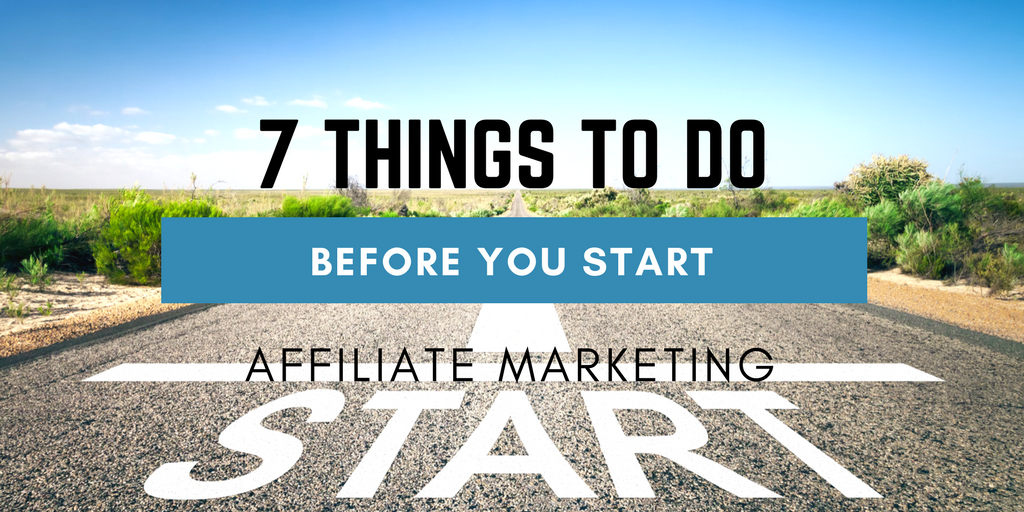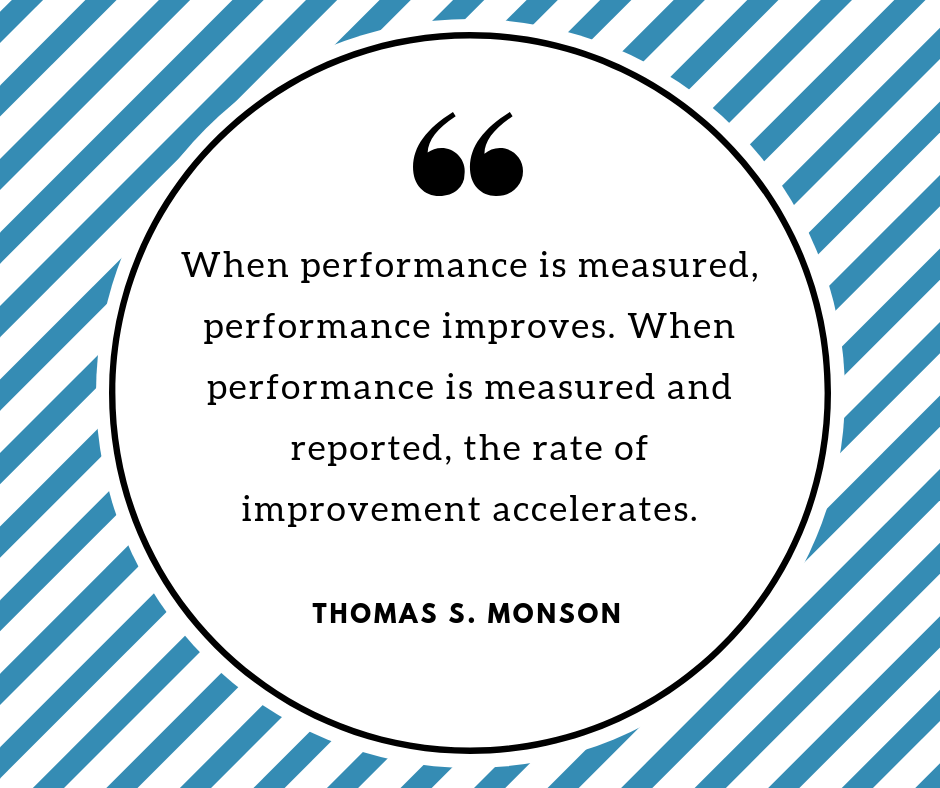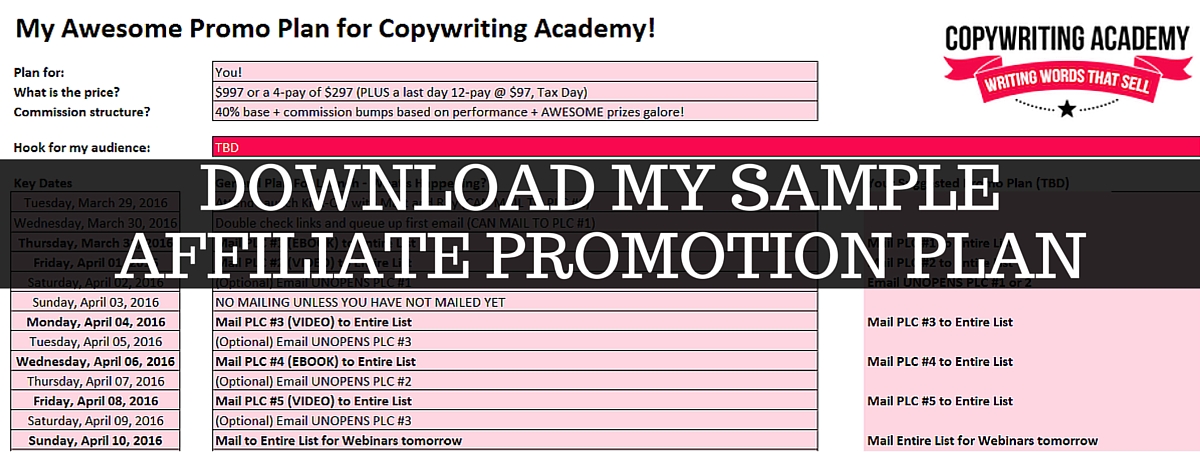I LOVE affiliate marketing. I believe every business can benefit from making affiliate marketing a part of their business model. The best part is…it’s SO EASY to get started. But there are some things you need to do BEFORE you start affiliate marketing. These things make it much easier to succeed from the beginning and prepare you for success in the long term.

Affiliate marketing is a great way to test the waters and start monetizing your online business. There is no risk. You don’t need to create a product. You don’t need employees (or anyone else).
And…affiliate marketing can be VERY lucrative.

But you need to make sure you cover all your bases so you can take full advantage of all that affiliate marketing has to offer.
Below, I share 7 things you need to do before you start affiliate marketing.
I don’t share any of these things to discourage you from getting started, but to show you just how easy it is.
1. Incorporate Your Business
Before you do anything business related, you need to incorporate your business. This could be an S-Corp, an LLC or at least a DBA (Doing Business As).
You simply cannot do this the right way starting off as merely an individual.
Sure, you can start as a sole proprietor, and in most states that could be as easy as just declaring that you are in business. But if you plan on bringing in any revenue (and isn’t that the point of a business?), you need to incorporate before you really feel like you need to.
Now, I’m not in the business of offering legal advice and I certainly recommend you seek qualified legal advice before making a decision, but my opinion is that you create either an LLC or an S-Corp just for the legal protections that they offer you.
And here’s a really cool side benefit of doing this: It makes you feel legit. That’s what happened to me when my wife and I incorporated our business. I carried myself differently. I felt like I had a REAL business all of the sudden, because…well, I DID!
And, ultimately, that helped my bottom line.
2. Get a Business Banking Account
Trust me on this, you do NOT want to mix business and personal banking. I’ve made that mistake and it flat out sucks.
You need a specific banking account for your business.
In most cases, this is as simple as going to your bank and setting up a free (or low cost) checking account that is specific to your business.
For accounting reasons you absolutely need to have this.
3. Get an EIN (or a tax number specific to your country)
The obvious reason for this is so that you don’t have to share your social security number or other identifying information.
I don’t know about you, but I’m not going to share my social security number or any other personally identifiable information with anyone online.
Especially random affiliate programs I sign up for.

That’s why I make sure to always use my company’s EIN (Employer Identification Number).
Most countries have an equivalent to an EIN so you don’t have to share any personally secure information.
If you live in the U.S., here’s a link to the IRS website to learn more about EINs.
4. Create a Spreadsheet to Track Earnings, Expenses, Etc.

Promoting affiliate offers should be profitable. In fact, it should be incredibly profitable if you are doing it the right way.
So when you’re first starting off, it’s important to create a system to track the following:
- Commissions earned (revenue)
- Ad costs (marketing expense)
- Wages for team members (if you have a team)
- Your time
For your time, I suggest “paying” yourself a fair wage on the sheet. That might be $50/hour or $500/hour, but the goal here is to track just how much time and money are you spending to bring in the revenue.
Remember this key: When performance is measured, performance improves.

This is important so you can see how profitable individual campaigns are.
The earnings part is easy because programs will typically have a dashboard that will show you how much you have earned. BUT how much time and money did you SPEND to earn those commissions?
That’s why you need to create some sort of spreadsheet or system so you can track each of these things.
Want to know how to monetize your blog with affiliate marketing? Click here for 7 ways to monetize your blog immediately.
5. Don’t Forget Taxes
Remember, you have to pay taxes on your earnings.

Let me be clear about something…I am not a Certified Public Accountant (shocking, I know). So I recommend talking with a CPA or other tax professional when planning for your individual situation. But I can share some general guidelines that I recommend you follow when it comes to taxes.
Make sure to set aside at least 25% of your earnings for taxes.
Expect to pay at least 25% of your profits in taxes.
It could be higher or lower based on what state you are in. If you are in California, for example, just plan on them taking it all (sorry…just stating the facts).
Once again, I am not a professional tax advisor, so I highly recommend you contact someone who IS a professional. At the very least, you can do some research on your own to figure out who much you set aside.
Remember, profit is what matters.
Going back to #4, you don’t necessarily pay taxes on your earnings, you pay taxes on your profits.
For example, if you make $5,000 on an affiliate campaign, but you spend $3,000 to generate it, in most places you are only paying taxes on the $2,000 profit.
Don’t try to cheat.
I know this probably goes without saying, but don’t try to hide your affiliate income.
It’s not “play money.” Just because it’s in your PayPal account and not in your bank account doesn’t mean the IRS or other government agencies can’t see it.
And it’s just the right thing to do.
Don’t try to cheat the system.

6. Set Up a PayPal Account
Speaking of PayPal, that is the #1 way that affiliate programs are going to pay you.
In fact, I would guess that 98% of the time that I’ve been paid by an affiliate program, it has been through PayPal.
So, before you even make your first dollar online, make sure you have your PayPal account set up.
If nothing else, it’s sending a subconscious message to yourself that you are ready. You’re in this to make money and you are prepared to make your first dollar online.
7. Create Your First Affiliate Promo Strategy
I have a free template that will walk you through how to create an affiliate promo strategy. But as soon as you sign up for your first affiliate program, I want you to create an affiliate promo strategy.
It is much easier to be successful in affiliate marketing when you have a strategy to actually follow.
So be sure to get my free template to create your affiliate promo strategy:
None of the to-do items in this post should keep you from getting started with affiliate marketing. You should get started today!
That’s why I will be hosting a free workshop beginning on May 29th. I will show you step-by-step how to succeed with affiliate marketing.
What is one thing that you would tell somebody they need to do before they start affiliate marketing?
Questions?
Text me anytime at (260) 217-4619.
Or…check out some of my free reports to help you get on the right track:
 |
 |
 |
 |
 |
 |
 |
 |
 |










Greetings, let me start off by thanking you for posting these steps. they have been insightful and I’m familiar with them as well. The one area that I am not familiar with is the actual process of filling out the affiliate program documentation, there are questions in there that I have no idea on how to answer let alone how to fill in. I’m the type of person that learns by example and I duplicate that action.
An example of what I am talking about would be that of Home Depot affiliate program sign up-under the Media properties? and all under that. If you could help that would be appreciated.
Benjamin, media properties typically means your web site, podcast, video channel, etc. Any of those things.
Hello Matt
I am interested in learning all I can about Affiliate marketing. Unfortunately my email address theoldschooler44@gmail.com, has been blocked by your website.
I don’t have any idea why.
Can you help me resolve the problem?
John Kent
Hey John, not sure what you mean sorry. But I signed you up, so you should be all set!